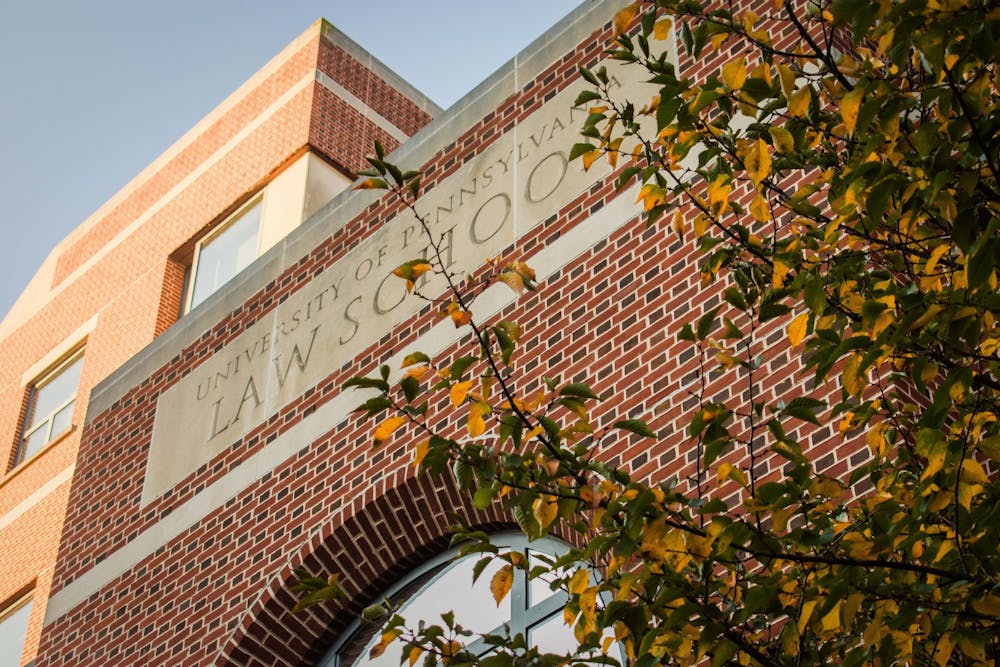Penn Law Students for Justice in Palestine, a student group, held a panel titled “Unraveling Zionism” on Oct. 20.
Approximately 100 individuals attended the panel including students from the University of Pennsylvania Carey Law School, Perelman School Of Medicine, Wharton School, and undergraduate programs. There were also representatives from the Philadelphia community and local organizations such as Black Alliance for Peace.
The panel was headed by three speakers: Penn professor and Political Science Department Chair Ian Lustick, former Deputy Director of Jewish Voices for Peace Rabbi Alissa Wise, and Jewish Voices for Peace member Marta Guttenberg.
The panel featured an interactive discussion between the speakers followed by an open Q&A section to further the conversation and understanding of Zionism, a movement that has advocated for the formation of a Jewish nation in Israel.
Penn Law SJP is a student organization associated with Penn Carey Law that seeks to support the Palestinian liberation movement and other related issues.
“Our main goal right now is really education. The Palestinian liberation movement can really improve a lot on educational grounds. It's really inaccessible to a lot of people,” said second-year Penn Carey Law student and Penn Law SJP board member Rachel Vacca.
Penn Law SJP’s panel sought to represent different perspectives on Zionism. Lustick said that he supported involvement with the movement, while Wise expressed opposition, and advocated for a different path.
In particular, Lustick and Wise debated the future of a Jewish nation, with Wise saying that “there is a better solution than a religious or ethnic nation that would lead to oppression,” and Lustick responding that “there is no such example [of that solution] in history or the present world.”
RELATED:
Penn begins search for successor to Penn Carey Law Dean Ted Ruger
Penn Carey Law professor co-leads report on Guantánamo Bay closure, prompting Congressional meetings
Wise added that “history doesn’t dictate our future,” adding that this mentality contributed to her decision to leave her former position as director at Jewish Voices for Peace.
However, several attendees pointed out the that the panel didn't include a Palestinian panelist.
“If anybody knows most about this issue, if anybody has lived in it, it's the people living in Palestine themselves. I do appreciate the insights. It was well-researched and factual, but I feel like I would have appreciated more Palestinian voices,” said College first year Reem Assi.
Penn Law SJP apologized for their exclusion of Palestinian panelists from the event at the end. They promised to add such perspectives to future events and continue to welcome students, educators, and individuals from all backgrounds to join the conversation on this issue.
Penn undergrads found the panel helpful for getting involved with prevalent social issues.
"It's really important to get involved, '' Wharton first year Vivian Li said, adding that sometimes, students can feel uncomfortable discussing controversial issues but that these conversations are vital.
“A lot of Jews or people who are ethnically Jewish are not comfortable discussing Zionism so this panel was very beneficial for me,” College first year Areebah Ahmed said.
The panel concluded with a free giveaway of Lustick’s book.









